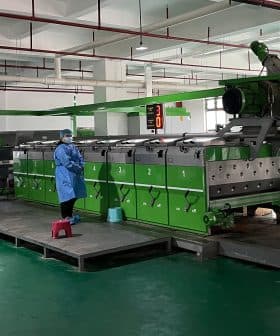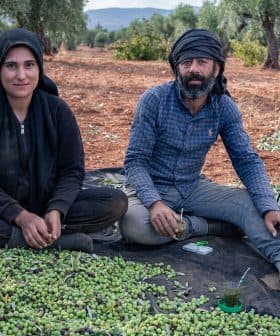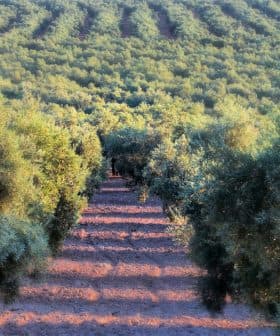Once Again, Olive Growers in Western Mediterranean Face Severe Drought

Farmers in Andalusia are struggling to provide enough water to their olive trees amid harsh summer conditions, resulting in disappointing fruit set and reduced oil accumulation. The persistent drought and high temperatures in the Western Mediterranean have led to severe water scarcity, with the Spanish government approving a financial support package to improve water infrastructure and aid farmers.
In irrigated olive groves, farmers in Andalusia are struggling to provide enough water to their trees to withstand the harsh summer conditions.
The recent rainfall has brought some relief to the trees’ olive development, but the overall fruit set has been disappointing, with plenty of barren groves.
Officials say the Andalusian olive harvest is expected to be shorter due to climate change; high temperatures and prolonged drought have resulted in lower fruitsets and significantly less oil accumulation.
See Also:Andalusian Ag Minister Pushes for A More Resilient Olive Oil SectorOnce again, high springtime temperatures resulted in early blooms among the olive groves of the world’s largest olive oil-producing region. These were followed by scorching temperatures in May, which damaged the blossoms and prevented many trees from developing fruit.
“The rainfed harvest is considered lost, while in irrigated land, we are trying to add as little water as possible as often as possible because the water we have will have to last through June, July, August and September,” Juan Luis Ávila, the head of the Coordinator of Agriculture and Livestock Organizations (COAG), told local media.
According to Ávila, there are 400 cubic meters of water in Andalusia reserved for agriculture, compared to the usual 1,500 cubic meters. The persistent drought has also reduced soil moisture, diminished river flow and stunted plant and crop growth.
In response, the Spanish government recently approved a €2 billion financial support package to improve water infrastructure and provide direct aid to ranchers and farmers.
Furthermore, the latest report from the Copernicus Drought Observatory highlights the extent of water scarcity in the Western Mediterranean, where severe drought has become the norm in the past few years.
Temperatures in southern Spain, Morocco, Algeria, northern Italy and southern France were 2.5 ºC above average, with some areas experiencing an alarming 4 ºC increase between May 2022 and April 2023.
Data from the European Commission’s Joint Research Center show that river flows across the western Mediterranean are extremely low due to inadequate precipitation.
As a result, most of the western Mediterranean is currently under warning and alert conditions, the two most severe levels, according to the combined drought indicator, which incorporates data on rainfall, soil moisture and vegetative stress.
The Iberian Peninsula (excluding northern Portugal), North Africa and central-southern France have witnessed significant vegetation stress, including crop failures and smaller olive drupes than usual.
Yield forecasts for the Maghreb region have plummeted well below average levels, raising concerns about the blooming of crops in Morocco, Algeria and Tunisia.
In the face of intensified drought conditions in the Iberian Peninsula and reduced yield predictions, there is some relief in other parts of Europe.
Adequate rainfall in the Balkans, Turkey and some parts of Italy and France have provided some respite for countries in the region.
The Mediterranean Agricultural Markets Network has emphasized the need to improve soil management in response to the drought. The European Commission is expected to propose a soil law this summer.
The proposed law would promote soil health and work to make the European Union’s agricultural sector more resilient to drought.









